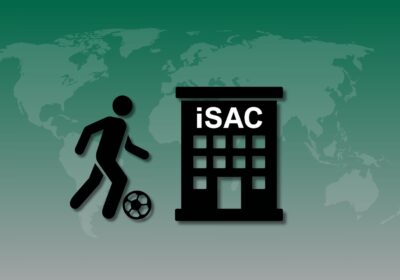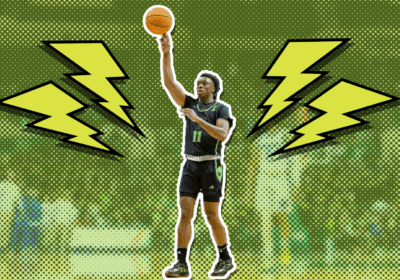Always on the move
Catherine Leibbrandt does not want to be known as “the sick girl.”
But the senior forward for the USF women’s soccer team has dealt with her fair share of sickness.
“This is like my gift from God,” Leibbrandt said. “It’s kind of like a trial, but it’s meant to impact the masses.”
This gift, that some may see as a burden, hasn’t stopped her from moving farther than many expected.
***
Leibbrandt, who has long been involved with Christianity and giving back, planned to go to nursing school since high school and wanted to work in underprivileged parts of the world.
In the summer of 2011, Leibbrandt got involved with an organization called Level Playing Field, in which Leibbrandt and other women in hostels lived for a month and a half, helping run soccer camps for young girls in Bolivia.
While she was in Bolivia, she started to become very sick, but things seemed fine once she returned to the states — until Aug 9.
About 30 minutes into a preseason match against Florida Gulf Coast University , Leibbrandt fell down with severe stomach pains and was taken to the hospital.
The doctor told her she had pre-gallbladder disease, or a “sludgy gallbladder.”
With the option to keep her gallbladder and see if things got better or remove it and get back on the field, she made her decision clear as the season was still young.
“Get that thing out of me,” she said she remembered telling doctors.
The doctors did, but Leibbrandt remained sick. She still had a lingering salmonella infection from her trip, and doctors continued to run tests on her.
After various tests and overnight stays at the hospital, Leibbrandt started training multiple times, only to find her symptoms did not disappear.
The FGCU game would be her only appearance on the field that season.
Before the start of the 2012 season, an MRI revealed Leibbrandt had an aneurysm in her brain.
In addition to the aneurysm, tests would later show she tested positive for PCOS, or polycystic ovary syndrome, a condition which causes a hormone
imbalance and can lead to difficulty getting pregnant and giving birth. Being a mother is still on her to-do list nevertheless.
But it wasn’t until the pre-season of 2012, when Navy SEALS were brought in to help train the team, that she discovered what would become her biggest obstacle.
During the training, her left eye began to drop. Her teammates thought she might be having a stroke.
She was admitted into the stroke unit of the hospital and tested negative for a stroke, but was then told of her incurable auto immune disease,
myasthenia gravis , a neuromuscular, autoimmune disease that affects the use of muscles. With MG, normal communication between the nerve and the muscle is interrupted, leaving the muscle weak and fatigued.
Stress, heat and exercise, things difficult to avoid in any sport, trigger the symptoms. They can range from one side of her face dropping, mimicking that of a stroke, to her body going into a state of temporary paralysis.
But as the news came, Leibbrandt said her faith strengthened.
“You never get used to it, but you have to make the best of it,” Leibbrandt said. “Humor is definitely a huge coping mechanism for me and my faith is huge too.”
Her coach, Denise Schilte-Brown, said she learns from Leibbrandt’s outlook on life.
“She is giving to all of us, and for me watching her everyday it’s an attitude,” Schilte-Brown said. “I think about my daughter who is only eight and I say ‘Wow, how can Cat keep that smile on her face and just approach every situation with an optimistic heart and mind?’ It empowers me to continue down this path of faith with my children to instill those beliefs. … Looking now at the reasons that we are blessed to have Cat on the team, talent is only one of the reasons we’re lucky to have her. It’s been the gift of her — her strength, her attitude and perseverance.”
***
Leibbrandt has more than persevered.
As team captain, she appeared in five games in 2012 at forward, doing things she said people with MG shouldn’t be able to. While her playing time is limited to around 15 minutes compared to the 60 to 70 minutes she used to play, she said it’s now all about strategizing her time.
By coming in for a bit in the first half and then taking a breather, Leibbrandt said she plays until her body can’t.
“(The team) pretty much lets me be stubborn about it. They know it’s my choice,” Leibbrandt said. “I never want to be babied or pitied on the field, and they never would.”
Sometimes she gets approached by teammates or other athletes who say they forget she was sick.12







